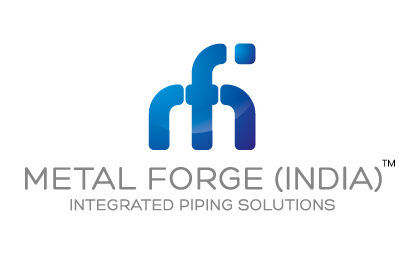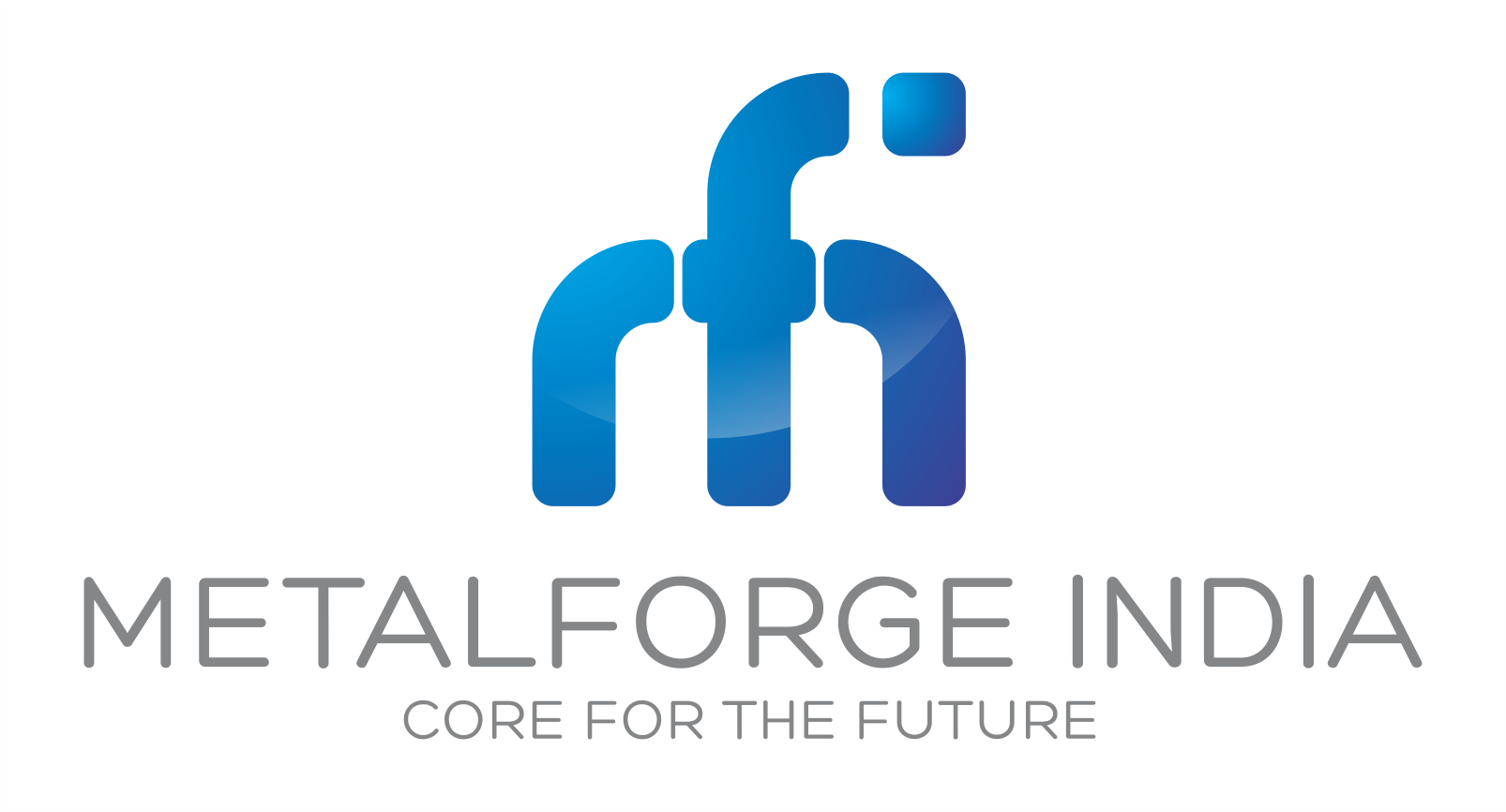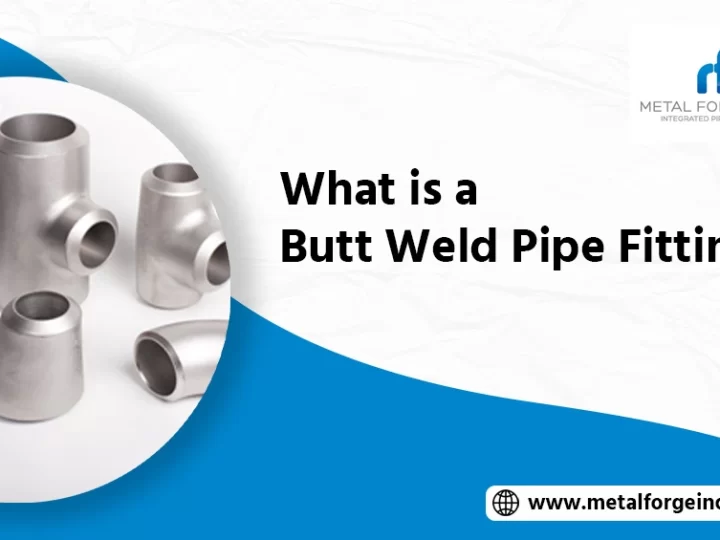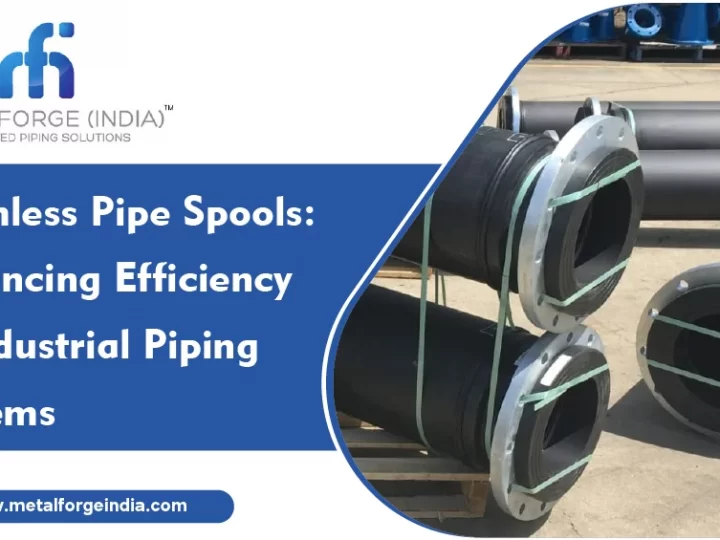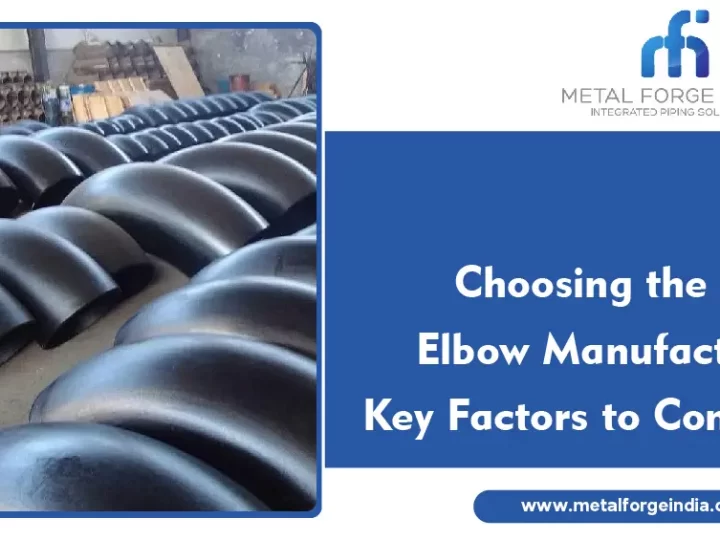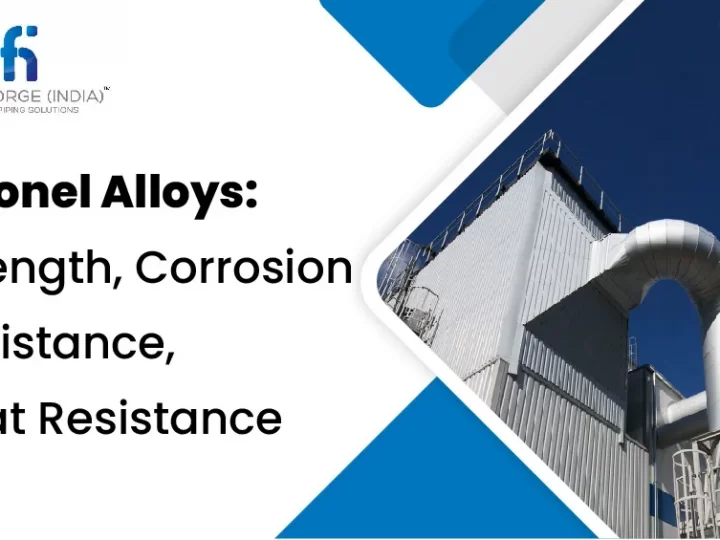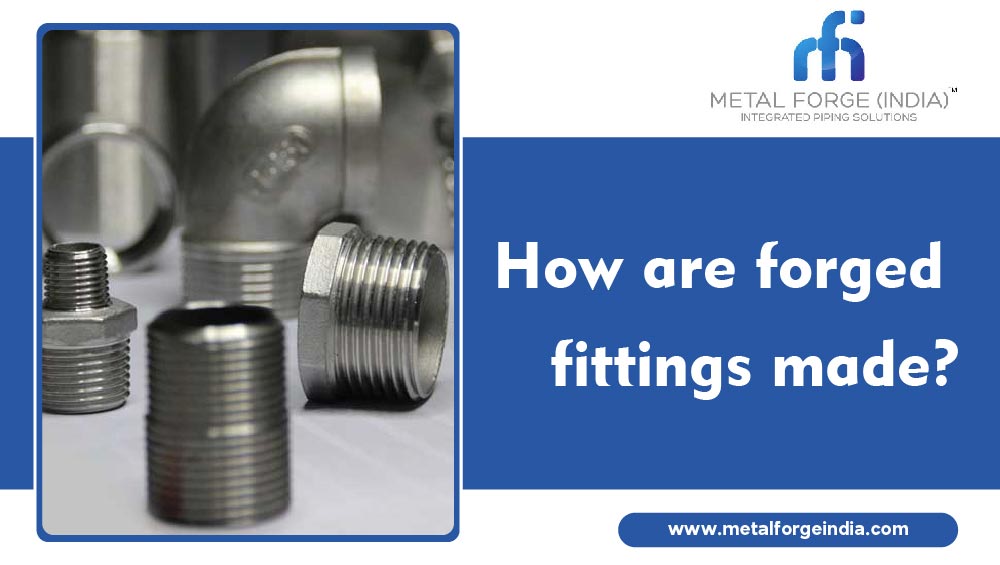
In today’s industrial landscape, forged fittings play a crucial role in ensuring the integrity and reliability of various piping systems. From oil and gas to petrochemicals, power generation to aerospace, forged fittings are indispensable components. As the leading forged fittings manufacturer, supplier, stockist, and exporter in India, Metal Forge India offers a wide range of high-quality forged fittings to cater to diverse industrial needs.
Forged pipe fittings, whether of Socket Weld or Threaded variety, adhere to the standards of ANSI/ASME/ASTM SA350 LF2 and Stainless Steel ASTM/ASME SA182 F304/L & F316/L. They are commonly used to connect pipes and pipelines with nominal bore schedules. These fittings are offered as either socket weld pipe fittings or threaded pipe fittings. Forged fittings are made of A105 (Stainless Steel, Carbon Steel, High Yield; Alloy Steel, Duplex & Super Duplex, and Nickel Alloys), rendering them thicker and stronger, and hence well-suited for heavy industrial usage. They are available in pressure groups ranging from 2000# to 9000#.
In this article, we will delve into the fascinating world of forged fittings and explore how they are made. If you’re looking for top-notch forged fittings, Metal Forge India is your go-to destination.
Introduction
Before we delve into the manufacturing process, let’s understand what forged fittings are and their significance in different industries. Forged fittings are pipe fittings that are created through the forging process, which involves the application of pressure and heat to shape the metal into the desired form. This manufacturing technique results in fittings that are stronger, more durable and have better mechanical properties compared to fittings made through other methods.
What are Forged Fittings?
Forged fittings are an integral part of piping systems, providing connections and facilitating the flow of fluids. They are commonly used to join pipes or tubes together or to connect them to various equipment. Some of the commonly used forged fittings include Elbow 45, 90, and 180 degrees forged fittings, Tee, Union, Half and Full Coupling, and Cross. Cap, Swage Nipple, Plug & Bushing. These fittings come in different sizes, types, and configurations to meet the specific requirements of different industries.
The manufacturing process of Forged fittings
The manufacturing process of forged fittings involves several steps to ensure their quality, strength, and durability. Let’s take a closer look at the key stages:
● Selection of Raw Materials: The process begins with the careful selection of high-quality raw materials. Forged fittings are commonly made from materials such as Stainless Steel, Carbon Steel, High Yield; Alloy Steel, Duplex & Super Duplex, and Nickel Alloys, depending on the specific requirements and applications.
● Heating: The selected raw material is heated in a furnace to a temperature that allows it to be shaped. The heating process helps to make the material more malleable and easier to work with.
● Forming: Once the material reaches the desired temperature, it is taken out of the furnace and placed on a forging die. A hydraulic or mechanical press exerts a force on the heated material, shaping it into the desired forged fitting form. The force applied during this process helps to refine the grain structure of the material, enhancing its mechanical properties.
● Trimming: After the forging process, excess material or the flash is trimmed off from the forged fitting. Trimming helps to achieve the precise dimensions and shape required for the fitting.
● Heat Treatment: To enhance the strength and durability of the forged fitting, it undergoes a heat treatment process. In this process, the fitting is heated to a specific temperature and then cooled under controlled conditions. Heat treatment helps to improve the material’s hardness, toughness, and overall mechanical properties.
● Machining: In some cases, the forged fitting may require further machining to achieve specific features, such as threaded ends or grooves. Machining processes like drilling, tapping, or milling are employed to create these features with precision.
● Surface Treatment: Depending on the application and desired finish, the forged fitting may undergo surface treatments such as polishing, galvanizing, or coating. These treatments enhance the fitting’s corrosion resistance and improve its overall aesthetics.
● Quality Control: During manufacturing, quality control measures are rigorously implemented. The forged fittings are inspected at various stages to ensure they meet the required specifications, tolerances, and quality standards. Non-destructive testing methods like ultrasonic testing or dye penetrant inspection may be employed to detect any defects or flaws.
By following this meticulous manufacturing process, forged fittings are produced with exceptional strength, durability, and reliability. They are essential components in various industries, ensuring safe and efficient fluid transportation in demanding environments.
Advantages of using Forged Fittings
Forged fittings offer several advantages over fittings manufactured by other methods. Here are some key benefits:
● Superior strength and durability: Due to the forging process, forged fittings exhibit exceptional strength and durability. They can withstand heavy loads, high pressures, and extreme temperature conditions, making them ideal for critical applications.
● Resistance to high pressure and temperature: Forged fittings are designed to withstand demanding environments, including high-pressure and high-temperature conditions. They provide reliable performance and ensure leak-free connections in such situations.
● Reliable performance in critical applications: Industries such as oil and gas, petrochemicals, and aerospace rely on forged fittings for their critical applications. The robust nature of forged fittings ensures reliable performance and minimizes the risk of failure or downtime.
Specifications of Forged Fittings
|
Forged Fitting Ranges |
¼” NB – 4” NB in Class 3000, 6000 & 9000 with NACE Certification |
|
Class |
2000#, 3000LBS, 6000LBS, 9000LBS |
|
Forms |
Elbow 45 degrees, Elbow 90 degrees, Elbow 180 degrees, Tee, Union, Half and Full Coupling, Cross. Cap, Swage Nipple, Plug & Bushing |
|
Grades |
ASTM A182, A105, A105N, A350 LF2, A182 F5, A182 F9, A182 F11, A182 F22, A182 F91 |
|
Materials |
Carbon Steel, High Yield, Alloy steel, Stainless Steel, Duplex, Super Duplex, Nickel alloys, and other exotic materials |
Applications of Forged Pipe Fittings
Forged fittings find widespread applications across various industries. Some notable applications include:
● Oil and Gas Industry
● Petrochemical Industry
● Petrochemical Industry
● Shipbuilding
● Aerospace Industry
● Chemical Processing
● Pharmaceutical Industry
● Food and Beverage Industry
● Pulp and Paper Industry
● Wastewater Treatment and so on.
Final Words!..
Forged fittings are vital components in various industries, providing reliable connections and ensuring the integrity of piping systems. When it comes to sourcing top-quality forged fittings, Metal Forge India is the leading choice. With their extensive range of high-quality products, customization options, competitive pricing, and strong customer relationships, We have established ourselves as a trusted manufacturer, supplier, stockist, and exporter in the industry. Choose Metal Forge India for all your forged fittings requirements and experience unmatched quality and service.
